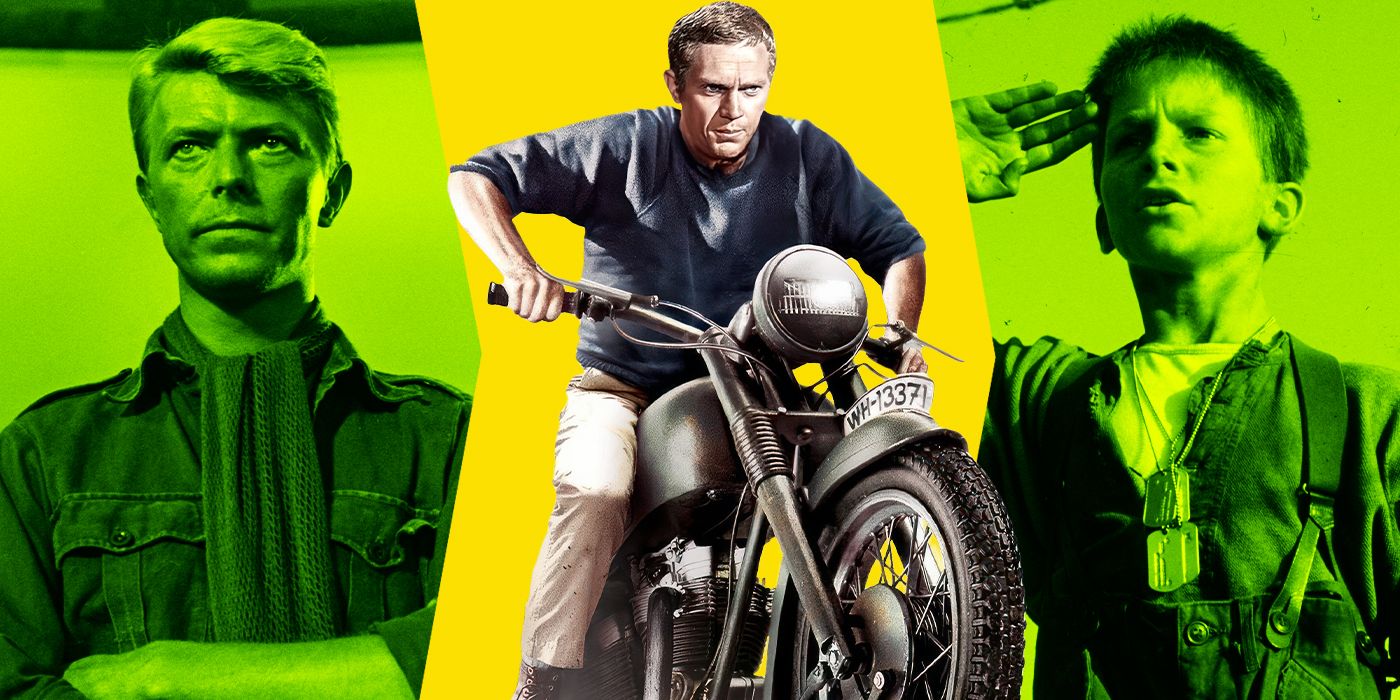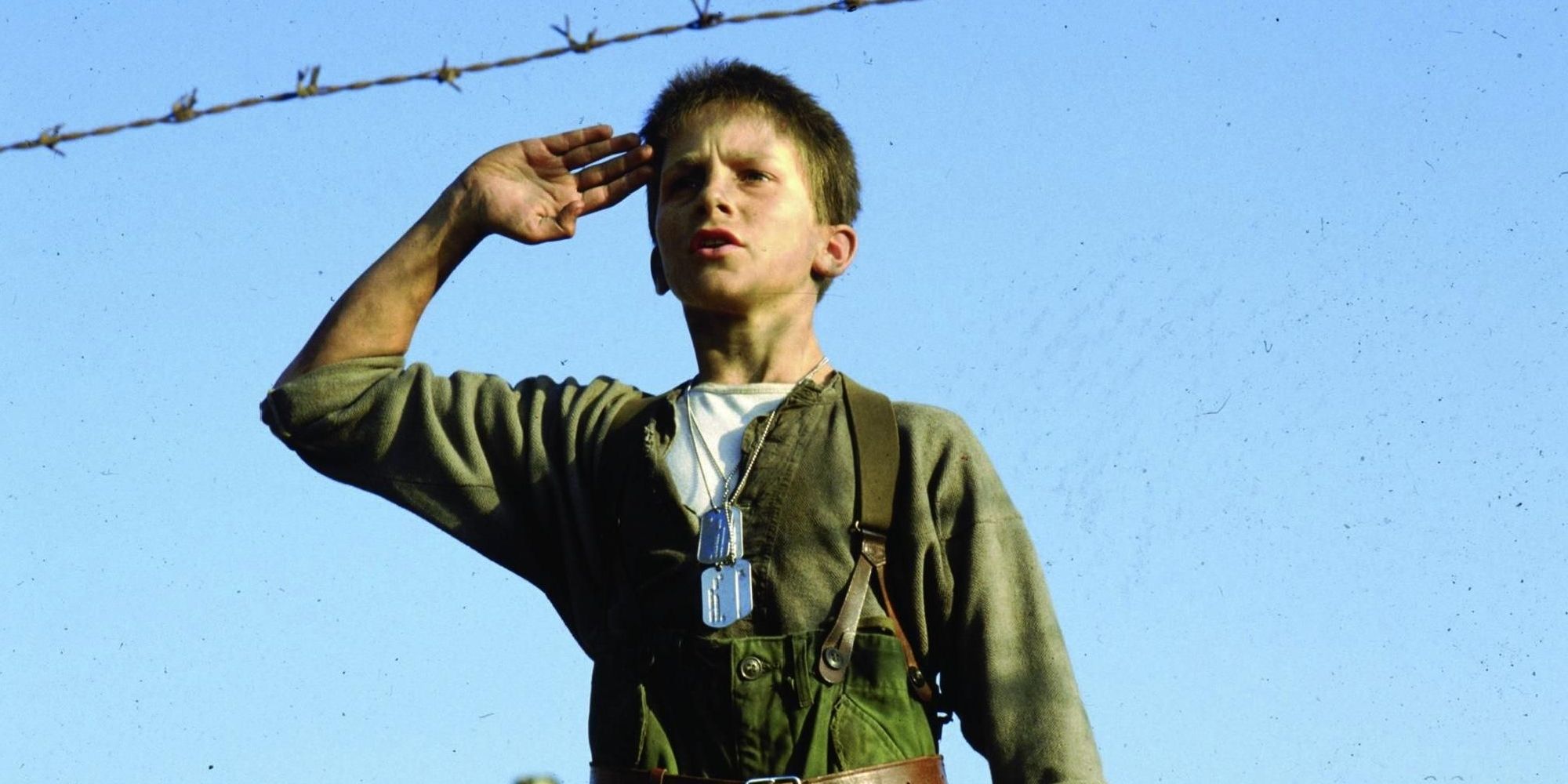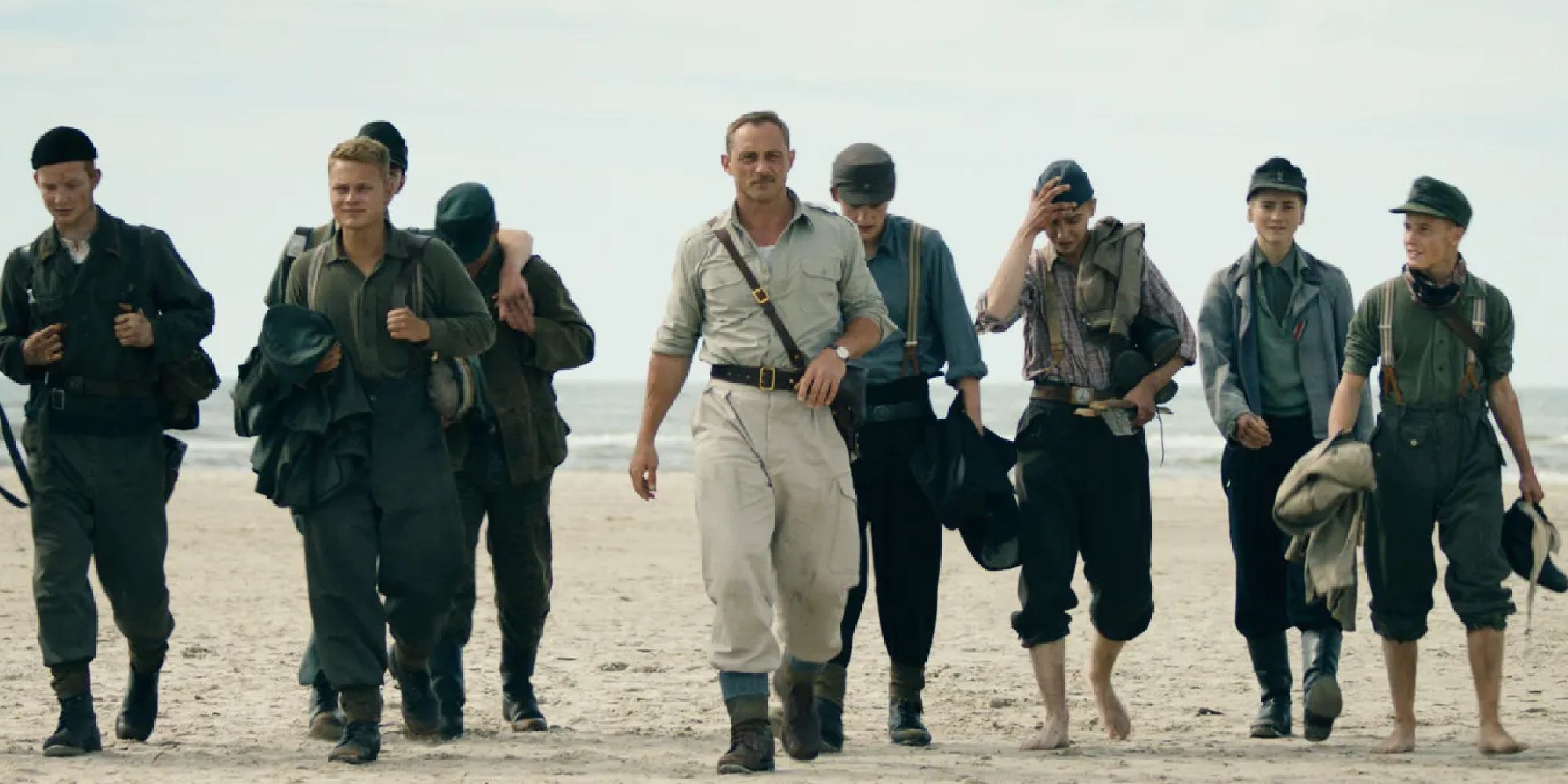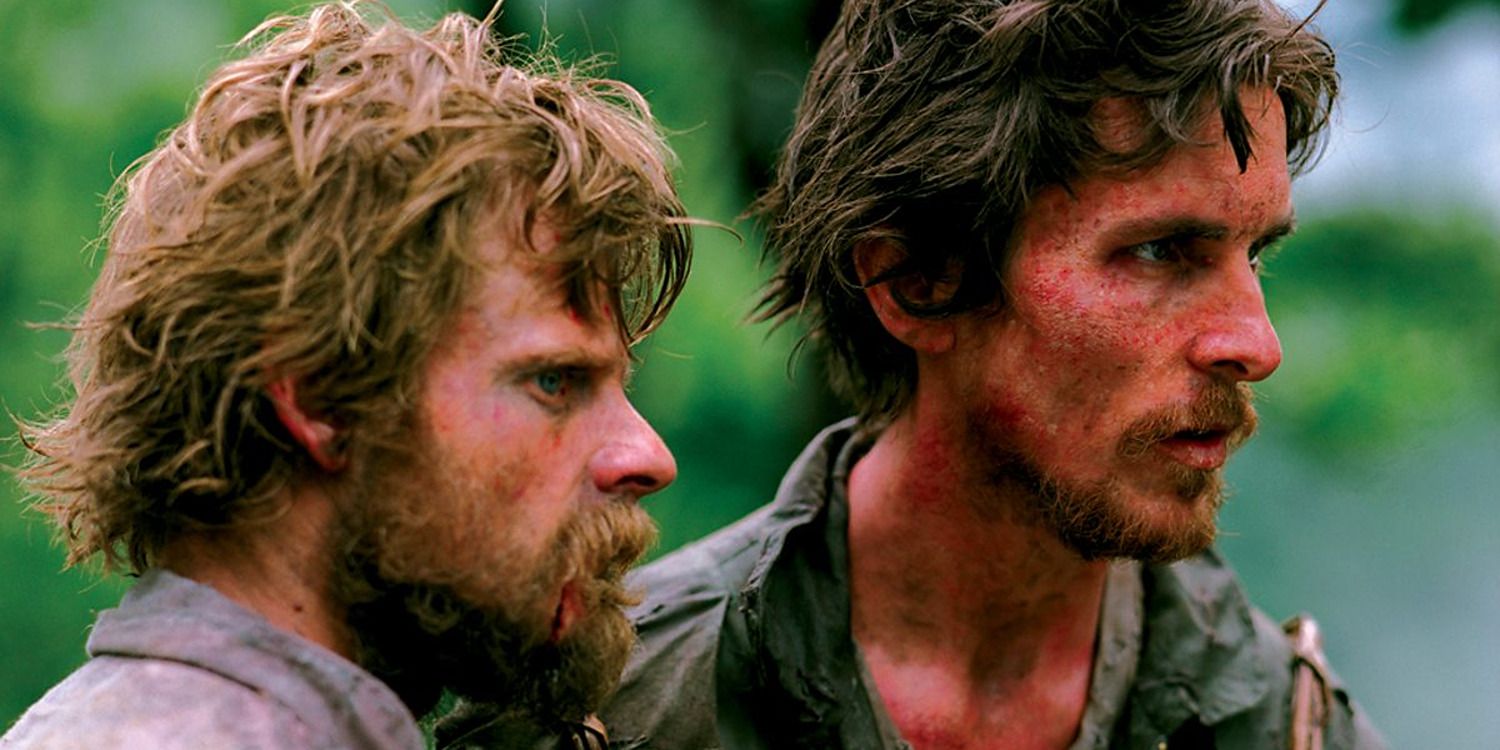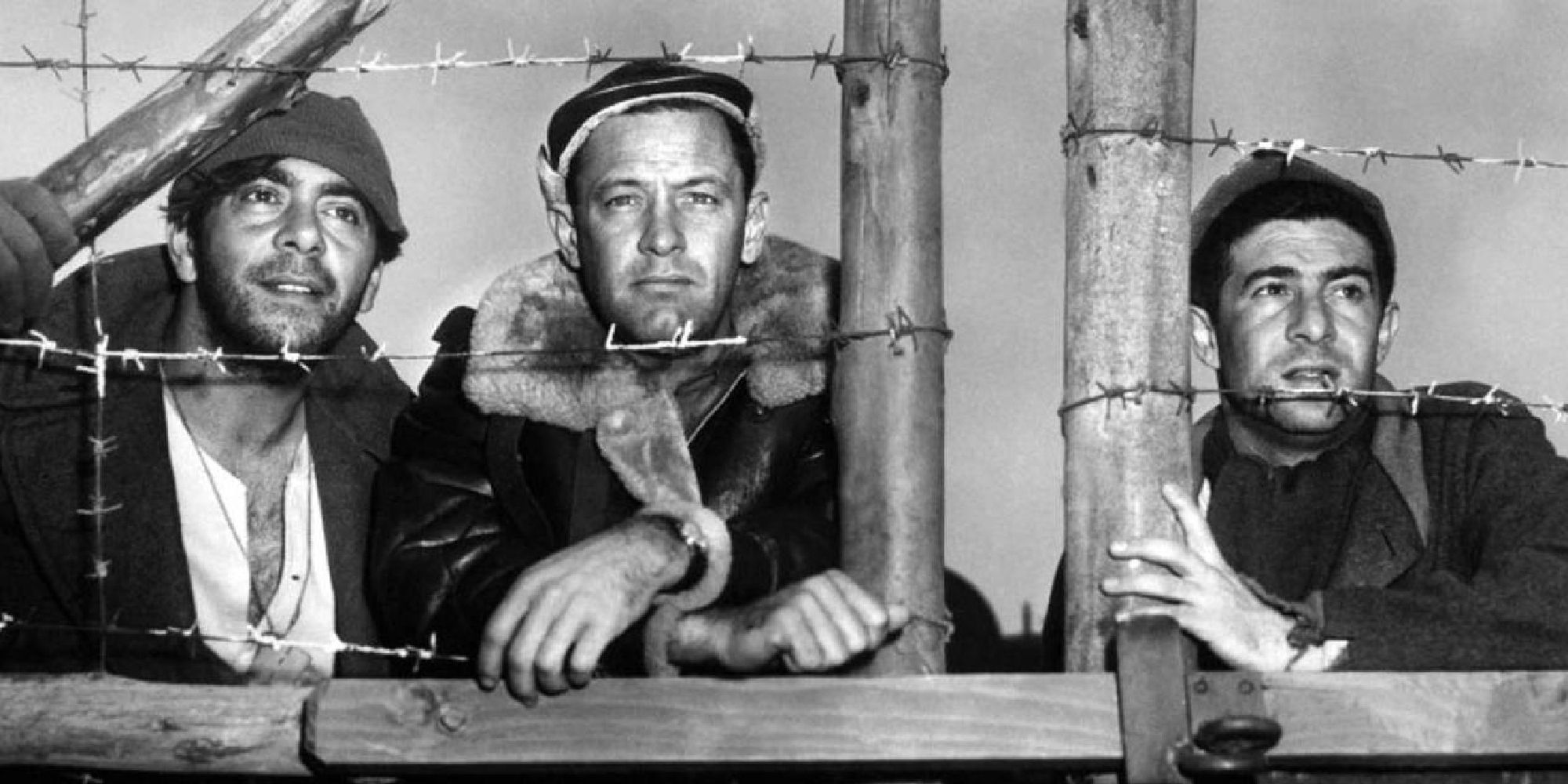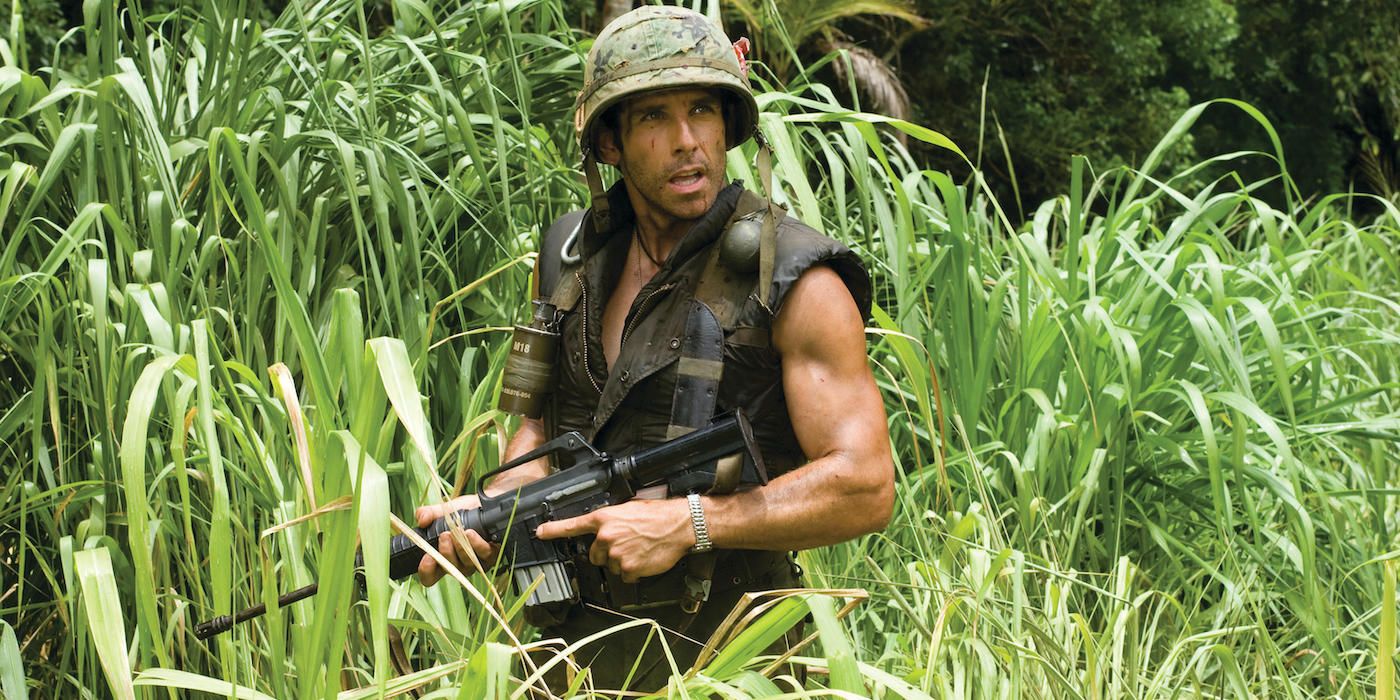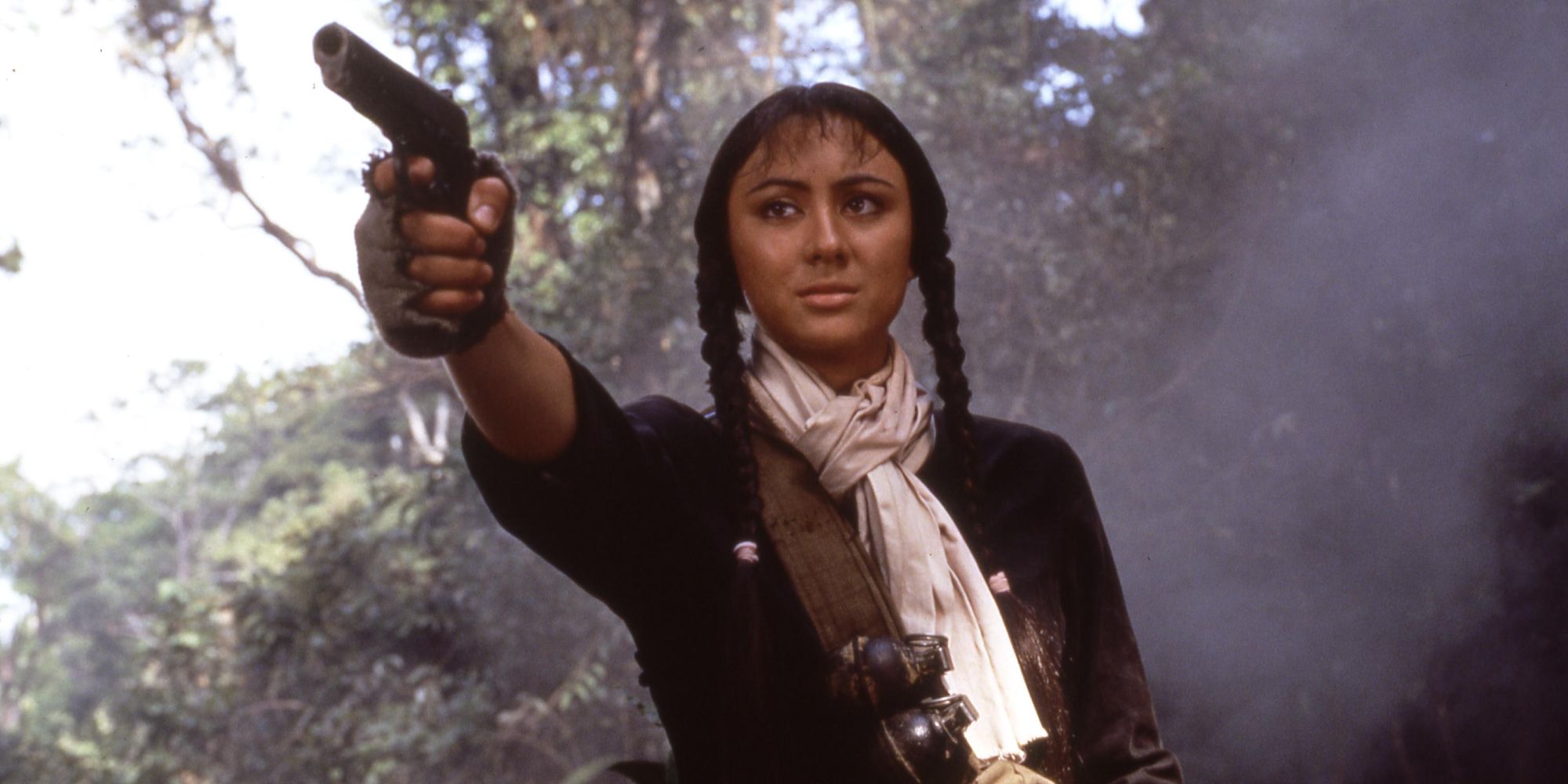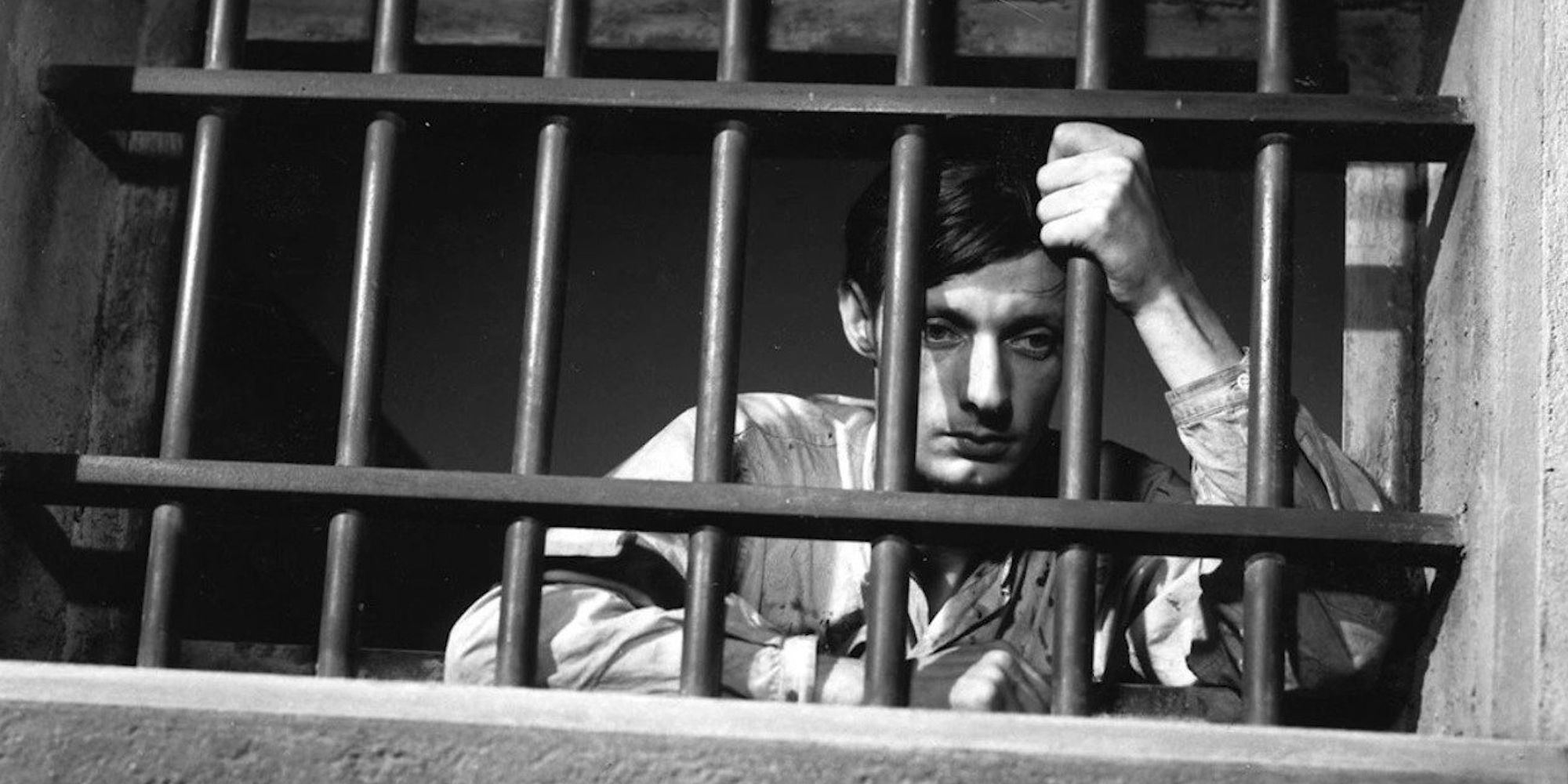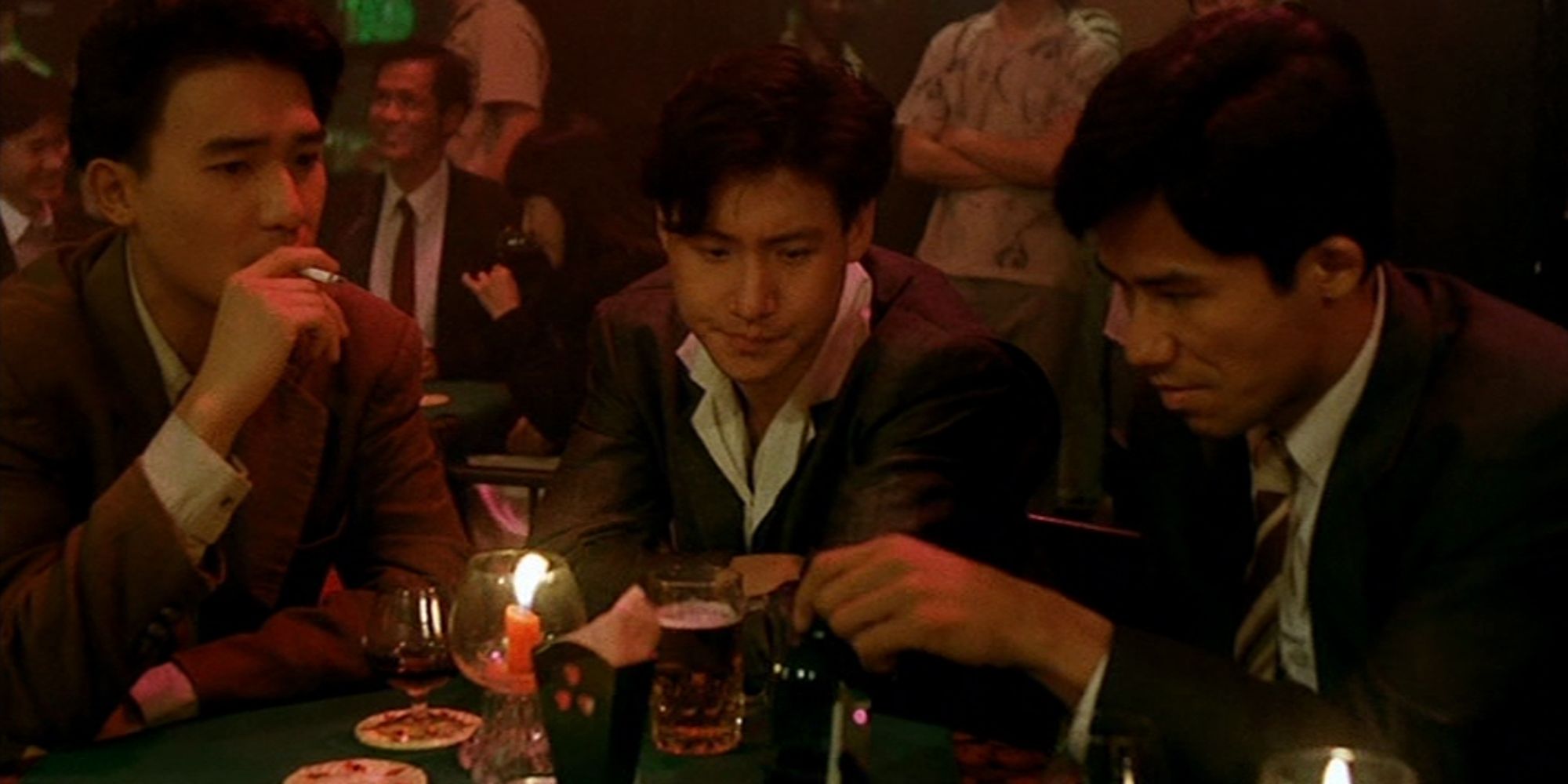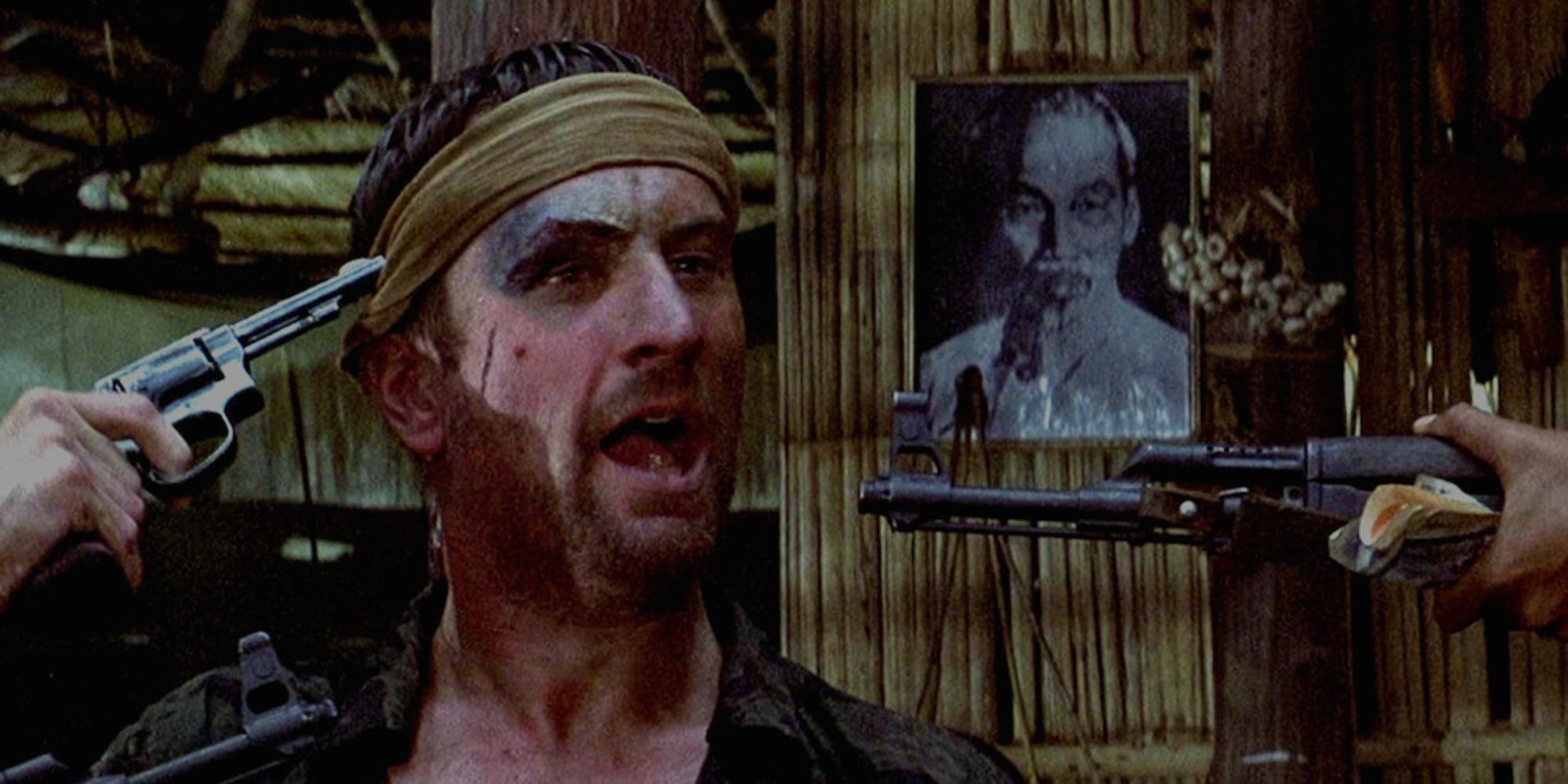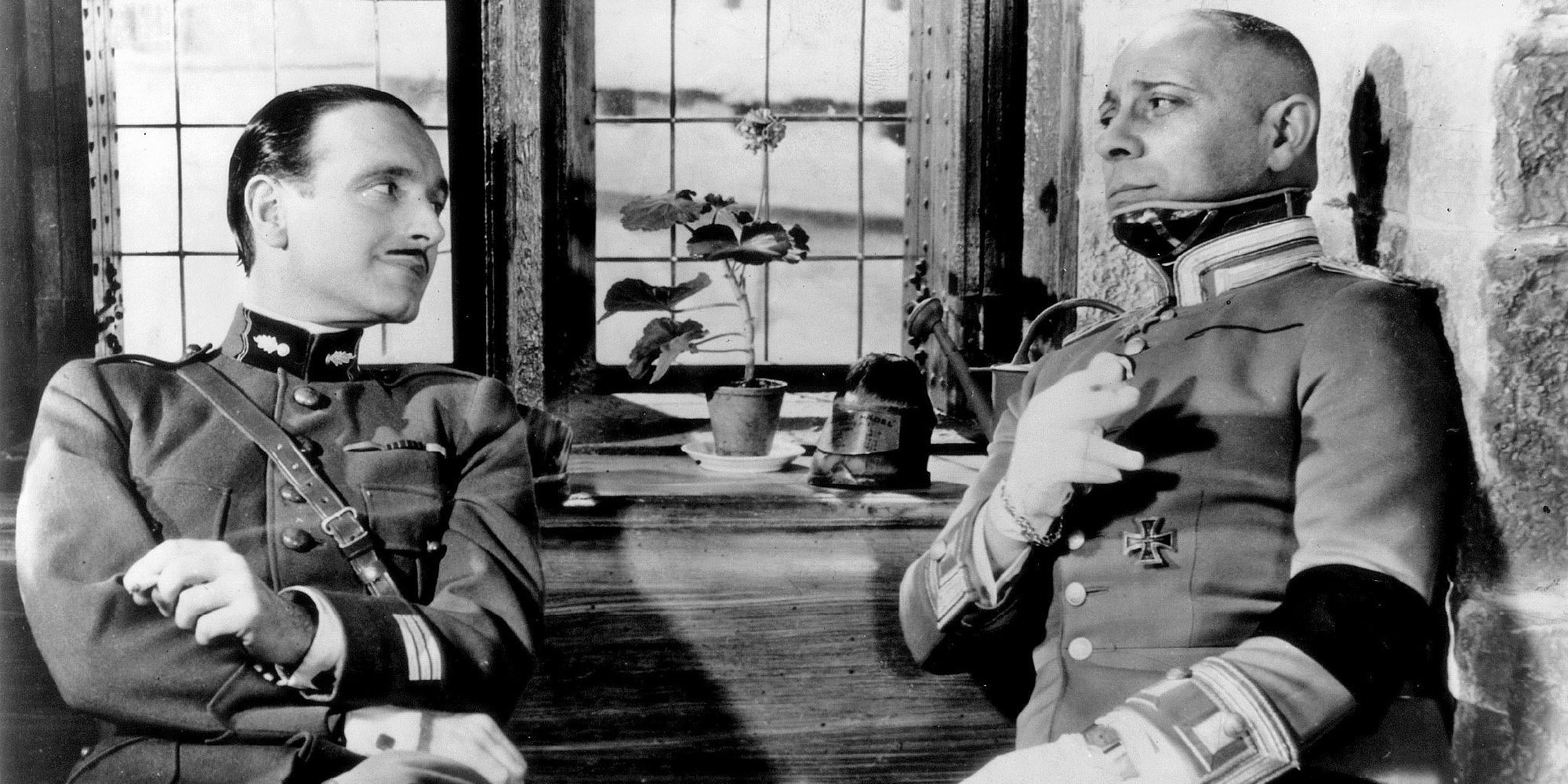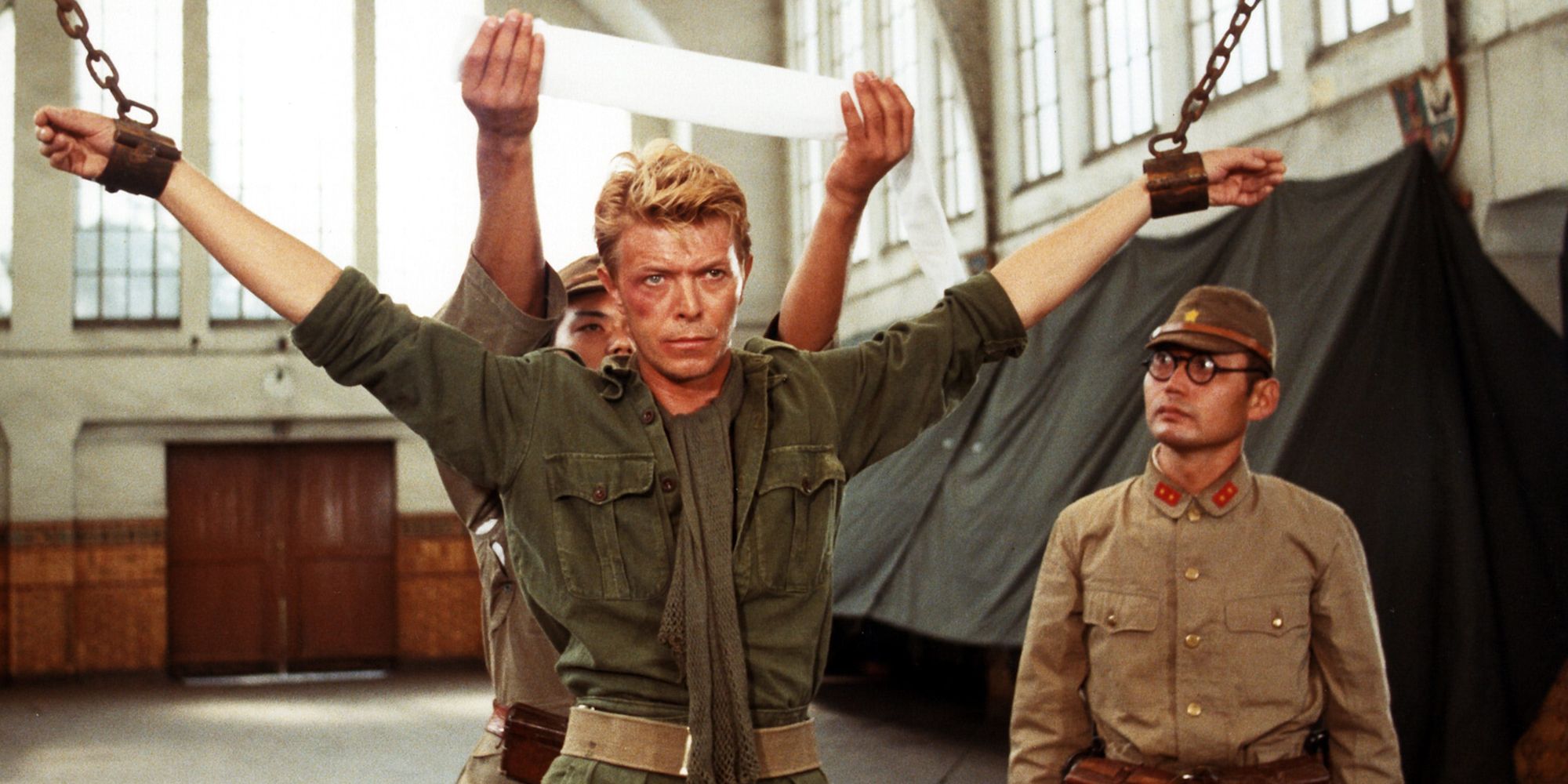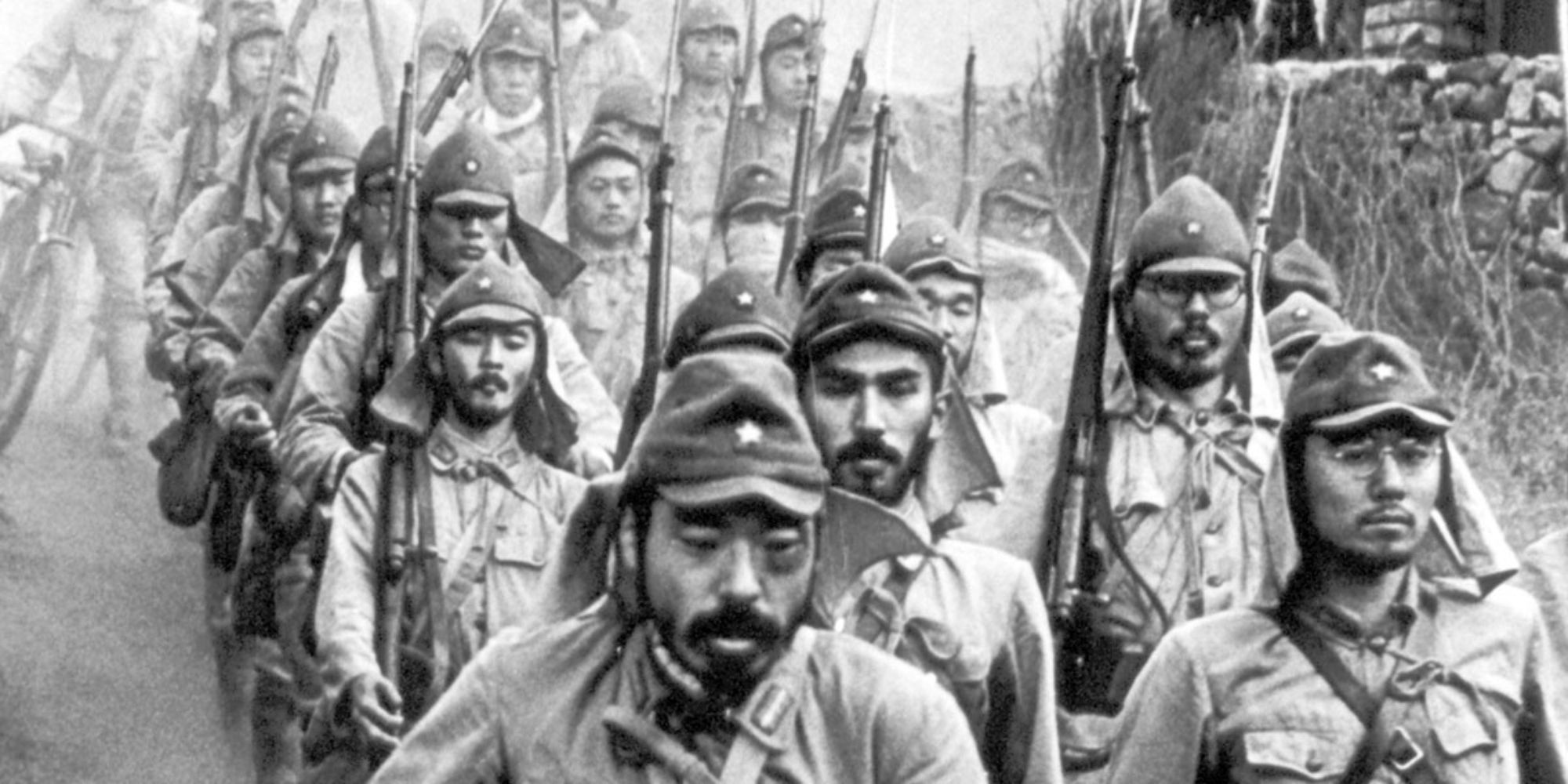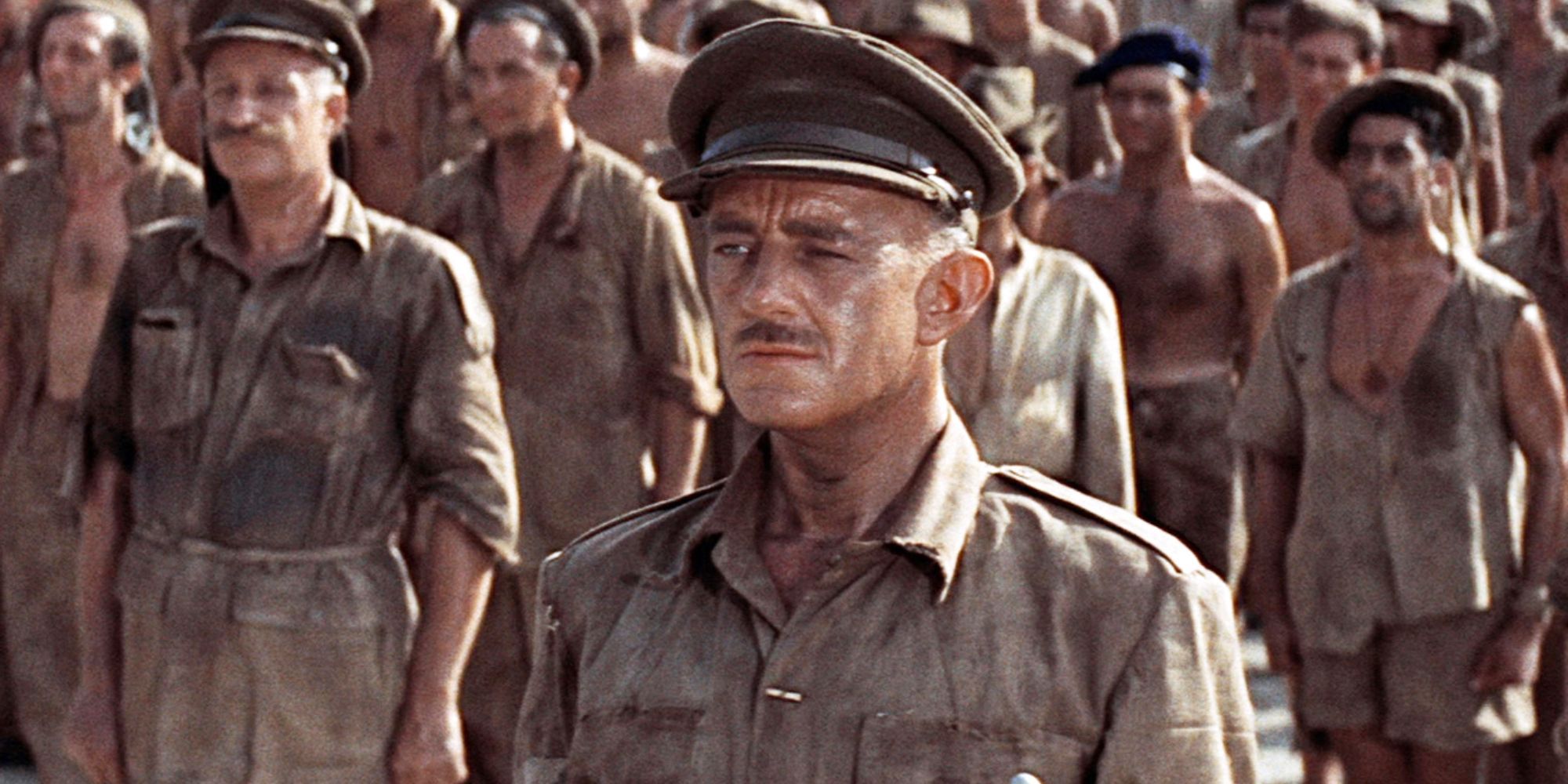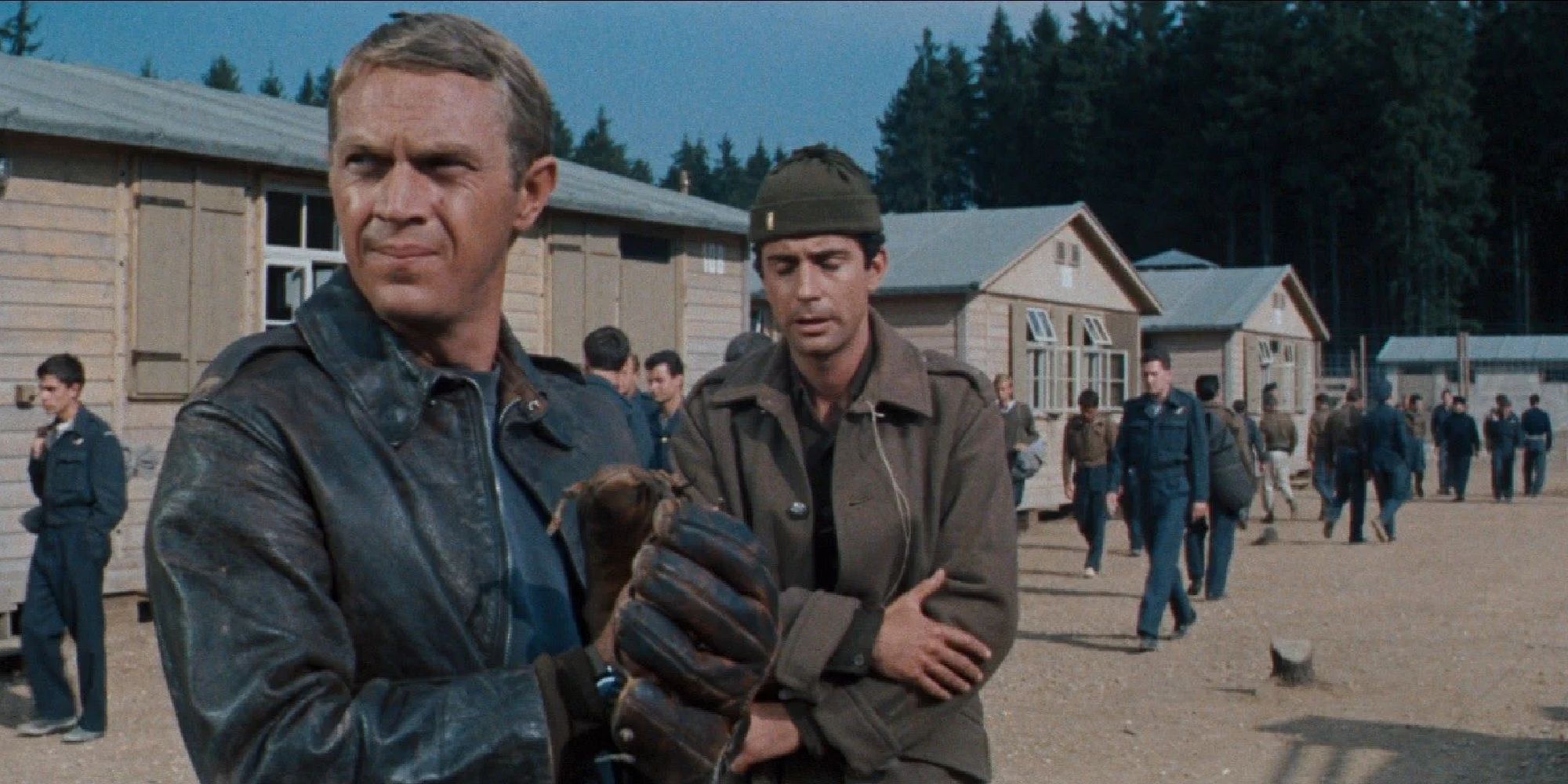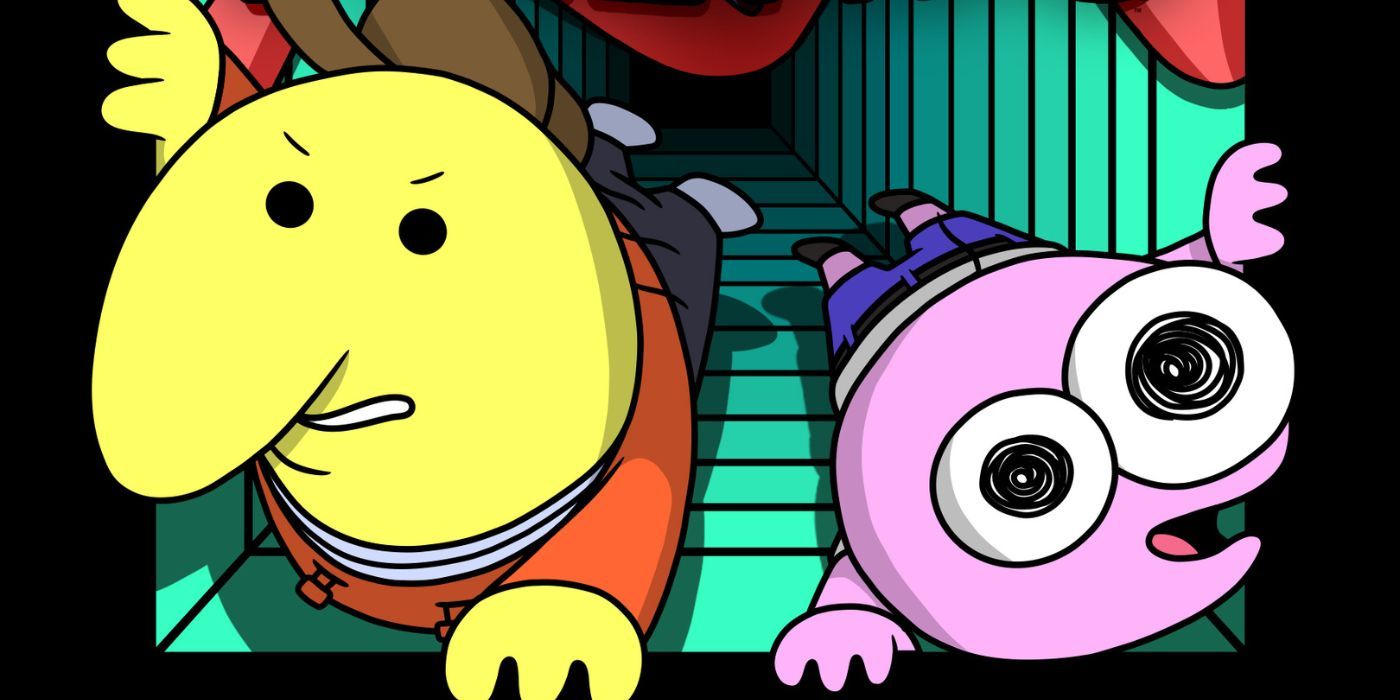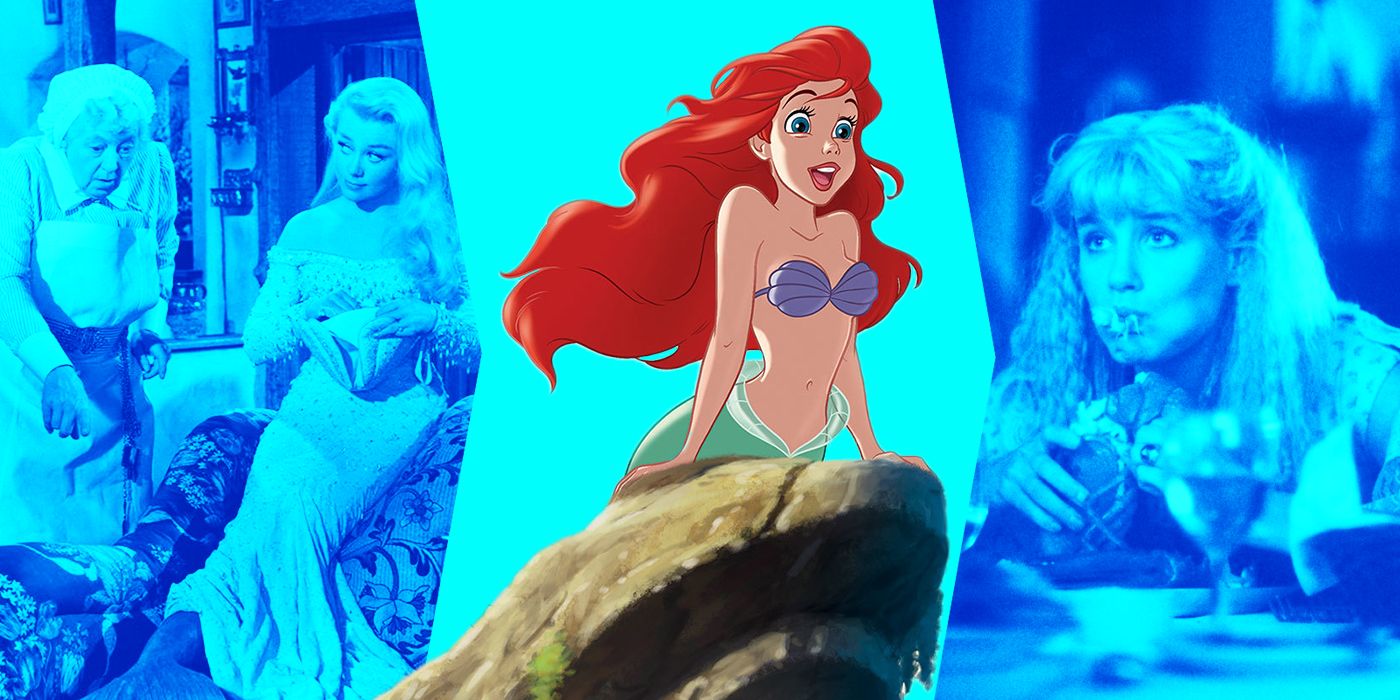Of the many unpleasant things associated with war, the experience of being a prisoner of war would have to rank among the least desirable, for obvious reasons. Survivor testimonies from being in prison camps where enemy combatants are the wardens/captors are always harrowing to read, and though certain prison camps have likely been worse than others, none have conditions one would ever want to experience for themselves.
Various war movies deal with being captured and imprisoned by an enemy force during warfare. The majority of these prisoner-of-war movies revolve around World War II, and occasionally other 20th-century conflicts, like World War I and the Vietnam War. Some focus on survival, while others are centered around escape, and are generally based on true events/people or, at the very least, inspired by real-world events. Some of the best of these films are ranked below, beginning with the very good and ending with the greatest.
15 ‘Missing in Action’ (1984)
Director: Joseph Zito
Missing in Action is exactly what you’d expect an action/war movie starring Chuck Norris to be, for better or worse. Norris plays a man who escaped from a prisoner of war camp back during the Vietnam War, and, 10 years later, is asked to go back there to rescue some U.S. soldiers who are still being held captive. Essentially, it scratches the same itch as a sequel to First Blood, except it’s probably even more over-the-top (and, to be fair, was released earlier).
Those who want a thoughtful look at what it’s like to be held captive during wartime won’t find it with Missing in Action, but anyone after action and Chuck Norris being Chuck Norris might find it worth a watch. Also, like the Rambo series, Missing in Action has its fair share of installments/sequels, with the series ending up as a trilogy.
Rent on Apple TV
14 ‘Empire of the Sun’ (1987)
Director: Steven Spielberg
Most war movies focus on adult characters, and thereby, it checks out that the majority of prisoner of war movies also focus on adults, especially owing to the fact that (generally) soldiers are of adult age. But Empire of the Sun stands out in this regard, largely following Japan’s invasion of Shanghai and subsequent imprisonment of foreigners through the eyes of a child (played by a young Christian Bale).
It’s one of many Steven Spielberg movies to depict a real-life historical event, with the semi-autobiographical story here (based on the experiences of writer J.G. Ballard) feeling authentic and even brutally honest at times. It depicts an already harrowing and intense survival story that’s made to feel all the more harsh because it features a child at the center of it all, which all adds up to make Empire of the Sun a powerful watch.
Empire of the Sun
- Release Date
- December 11, 1987
- Runtime
- 154m
- Main Genre
- War
Rent on Apple TV
13 ‘Land of Mine’ (2015)
Director: Martin Zandvliet
Land of Mine presents the daunting reality that even once a war is officially over, and the fighting is said to have ceased, the horrors of the situation don’t immediately go away for everyone. Movies like 1948’s Bicycle Thieves and some other Italian Neorealist films show the effects of war’s aftermath on civilians, but Land of Mine opts to take a different approach, following a group of young German soldiers shortly after their country’s surrender in May 1945.
These soldiers/prisoners are assigned an incredibly dangerous task by Danish authorities: they’re to remove countless mines from the shores of Denmark that had been planted there earlier in the war by German forces. Land of Mine is a vital film in showing how the horrors of war continue after wars are technically over, as well as for being an extremely intense and harrowing experience to watch, owing to all the scenes of risky mine defusing.
Watch on Starz
12 ‘Rescue Dawn’ (2006)
Director: Werner Herzog
Werner Herzog has told the story of naval aviator Dieter Dengler twice in his filmmaking career. The first time was through an excellent and extremely personal 1997 documentary called Little Dieter Needs to Fly, with the second time coming almost a decade later. This time, it was a feature film called Rescue Dawn, starring Christian Bale in the lead role and presenting a more cinematic/dramatic retelling of Dengler’s life.
Rescue Dawn is particularly focused on Dengler’s experiences during the Vietnam War, predominantly what happened when his plane was shot down. He was imprisoned and tortured for half a year, and then mounted a daring escape attempt from the prison camp, ultimately being on the run alone in the jungle for several weeks. Herzog’s must-see film is a grueling and intense watch, but definitely a compelling one that solidly retells an unbelievable true story.
Rescue Dawn
- Release Date
- September 9, 2006
- Director
- Werner Herzog
- Runtime
- 126
Rent on Apple TV
11 ‘Stalag 17’ (1953)
Director: Billy Wilder
One of many great movies directed by Billy Wilder during the 1950s, Stalag 17 sees him bringing his sense of humor to a genre that doesn’t typically cross over with comedy: the prisoner of war movie. It takes place during the end of 1944, with its main characters being a group of American soldiers being held captive in a large German prisoner camp.
Its premise and use of humor might make viewers think of the TV series Hogan’s Heroes, and Stalag 17 might also scratch a similar war/dramedy itch to M*A*S*H. Wilder’s movie is extremely well written and utilizes its confined premise well, balancing some comedy with the more serious elements inherent to the war genre to great effect, with Stalag 17 overall feeling like a movie of the ‘50s that’s held up pretty well.
Watch on Tubi
10 ‘Tropic Thunder’ (2008)
Director: Ben Stiller
Being even more broadly comedic than Stalag 17, Tropic Thunder is something of a war movie with certain scenes that sort of take place in a prison camp… or at least that’s what some characters think. The film has a unique premise that allows it to parody war and prisoner-of-war movies, with actors making what they think is a war movie, yet finding themselves in danger from heavily-armed criminals.
It’s all very silly and pushes things far when it comes to its satire, but though Tropic Thunder could offend, just about all the humor is targeted at the U.S. film industry, its shallowness, and the lengths actors will go to for purported glory. It’s more of a comedy than a traditional war film, but takes the tropes associated with the latter and deconstructs/does unusual things with them, making for one blast of a movie.
9 ‘Eastern Condors’ (1987)
Director: Sammo Hung
It’s hard not to think of The Dirty Dozen when Eastern Condors first gets underway, seeing as both movies revolve around a group of prisoners being tasked with a highly dangerous mission that, if successful, could see them getting reduced sentences or pardons. With Eastern Condors, the mission takes place shortly after the Vietnam War and involves the group having to destroy a stockpile of missiles that the U.S. Army left behind in Vietnam.
Having prisoners make up the main cast of a war film doesn’t automatically make Eastern Condors a prisoner-of-war movie, but they do get taken captive at one point, leading to a daring and bombastic escape so that their mission can continue. Eastern Condors also stands out thanks to how much over-the-top action and thrilling martial arts sequences the film contains, as one would expect from something directed by – and starring – Sammo Hung.
Buy on Amazon
8 ‘A Man Escaped’ (1956)
Director: Robert Bresson
Prison escape movies don’t get much more direct or satisfying than A Man Escaped, which is a classic French drama/war/thriller movie that breaks this type of film down to its bare essentials. The imprisoned French Resistance fighter who’s seeking freedom doesn’t have the luxury of assembling a team to break out alongside, and so the audience watches as he painstakingly plans and then executes an ambitious escape plan all on his own.
This simplicity might make A Man Escaped sound a little boring on paper, but thankfully, that couldn’t be further from the truth. It’s an oddly engrossing movie, its deliberate pacing never feels slow, and it has a persistent sense of quiet tension throughout that always keeps things engaging. Prisoner of war movies centering on a daring escape rarely manage to feel a whole lot better than this.
Watch on Criterion
7 ‘Bullet in the Head’ (1990)
Director: John Woo
For as great as something like Face/Off is, John Woo is ultimately a filmmaker who’s made most of his best stuff in Hong Kong, with Bullet in the Head being one of his best, even if it’s not quite as well-known as The Killer or Hard Boiled. It’s admittedly a grimmer film than those two, still containing some trademark John Woo action but feeling more intense because its storyline involves the Vietnam War.
The main characters of Bullet in the Head are criminals from Hong Kong who, because of their exploits, eventually find themselves captured by Vietcong forces. Things shift from feeling like a crime movie to being one about survival and escape, with the prison camp scenes feeling particularly gritty and hard to watch at times. Bullet in the Head can be explosive and engaging, but it is also quite bleak, and unafraid to get dark and melancholic at points throughout its runtime.
Buy on Amazon
6 ‘The Deer Hunter’ (1978)
Director: Michael Cimino
When talking about prisoner-of-war movies, The Deer Hunter is a slightly difficult one for a couple of key reasons. The first is that this Best Picture-winning war movie only partly deals with the experiences of being a prisoner of war in Vietnam, contained within the second of the film’s three acts. Earlier parts of the movie concern the main characters before they go to fight in Vietnam, and then the final act of the movie deals with their life post-service.
The second reason the prisoner-of-war scenes in The Deer Hunter are difficult to discuss is because they feature prisoners forced to play Russian roulette, the historical accuracy of which was questioned and caused some controversy. The film does find time, owing to its epic length, to successfully address the experience of fighting in Vietnam before, after, and during, but perhaps reading some of the details as metaphorical rather than literal is the best way to approach things.
The Deer Hunter
- Release Date
- December 8, 1978
- Director
- Michael Cimino
- Runtime
- 183 minutes
5 ‘Grand Illusion’ (1937)
Director: Jean Renoir
Jean Renoir was arguably at the peak of his directing powers in the 1930s, making films that commentated on aspects of society in ways that could be equal parts funny and sad. Grand Illusion does lean more on the serious side of things, as a prisoner-of-war drama (and one set during World War I, notably), though it does still unpack class differences through its narrative, with characters from a variety of backgrounds becoming imprisoned together.
The French prisoners continually plan an escape, even though it consistently looks all the more unlikely to come to fruition, while a German officer finds himself strangely drawn to one of the prisoners he’s supposed to be overseeing. Grand Illusion is a complex and always intriguing classic of French cinema, and undoubtedly one worth checking out for those who want to see a daring film lay the foundation for many war/prison movies to come.
Buy on Amazon
4 ‘Merry Christmas, Mr. Lawrence’ (1983)
Director: Nagisa Ōshima
Telling a story about a clash of cultures while being set almost entirely in a prisoner of war camp and partially qualifying as a Christmas movie, Merry Christmas, Mr. Lawrence really does have it all. And that’s before even mentioning its surprising cast, with iconic British musician David Bowie playing one of the main prisoners, and acclaimed Japanese musician Ryuichi Sakamoto playing the head of the camp (Sakamoto also composed the film’s memorable score).
It’s a strange yet hypnotic movie, with a constant conflict playing out inside the camp; one just as emotionally devastating – albeit less physically explosive – than the conflict that would be playing out on the battlefield during the Pacific theater of World War II. It’s a tense and troubling film, but still, it remains easy to recommend Merry Christmas, Mr. Lawrence to those who appreciate the war genre but want to see something they probably haven’t experienced before.
Watch on Criterion
3 ‘Devils on the Doorstep’ (2000)
Director: Jiang Wen
An incredibly underrated war movie that deserves a lot more attention than it gets, Devils on the Doorstep takes a unique approach to both the war genre broadly and the prisoner-of-war sub-genre more specifically. It’s set near the end of the Second Sino-Japanese War, which was a conflict that started slightly before World War II and continued throughout, both being brought to an end in 1945.
Narratively, it revolves around a peasant in a small town in China being ordered to hold onto two Japanese soldiers who’ve been taken captive, which, in essence, puts a spin on the normal idea of a prisoner-of-war movie due to not taking place in a traditional prison camp. Devils on the Doorstep is also surprisingly funny and satirical for its first two acts, before seamlessly jumping into a more devastating and harrowing final act that drives home a strong anti-war sentiment. In conveying the madness of war, the film is strikingly effective overall, both when it’s funny and when it feels tragic.
Buy on Amazon
2 ‘The Bridge on the River Kwai’ (1957)
Director: David Lean
An adventure/war movie that won Best Picture, all the while also being an undeniably excellent epic, The Bridge on the River Kwai centers on a group of British prisoners forced to build a bridge by their Japanese captors during the Second World War. Even though the destruction of the bridge would benefit the overall Allied cause, the British colonel in charge of overseeing the construction rejects such plans, owing to the surprising sense of pride he finds in the project.
Perhaps The Bridge on the River Kwai is commenting on how the human mind and/or spirit needs to latch onto whatever it can, to keep the body going in difficult circumstances. Or it could just be a commentary on the mindlessness and pointlessness of war, ultimately being something that leads to everyone losing. It’s also possibly both; it’s ambitious and successfully chews all it bites off, justifiably earning its status as a classic in the process.
The Bridge on the River Kwai
- Release Date
- October 11, 1957
- Director
- David Lean
- Cast
- William Holden , Alec Guinness , Jack Hawkins , Sessue Hayakawa , James Donald , Geoffrey Horne
- Runtime
- 161
1 ‘The Great Escape’ (1963)
Director: John Sturges
The Great Escape’s title is a perfect one, because it’s all about an escape, and it’s an indisputably great movie. The film is set during World War II, and follows the day-to-day lives of numerous prisoners at a prison camp that’s designed to be as difficult to escape from as possible. The Allied soldiers nevertheless want to give escaping a go, preparing a complex scheme to break free and escape their German captors.
The Great Escape is a movie that runs for almost three hours, but that runtime ends up flying by, owing to just how fantastically the movie is paced and how suspenseful it manages to be. War movies don’t get much better than this, and neither do prison movies, so it ends up simply being a fact that The Great Escape remains the gold standard for how to best craft a prisoner of war movie.
The Great Escape
- Release Date
- June 20, 1963
- Director
- John Sturges
- Runtime
- 172

